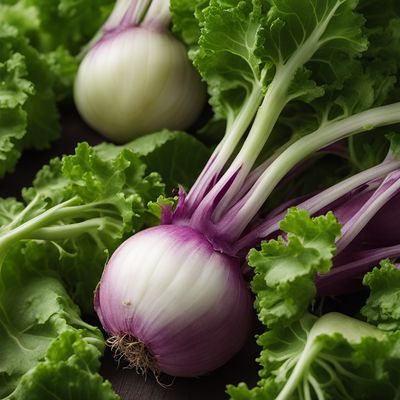
Ingredient
Rapeseeds
The Golden Gems: Rapeseeds
Rapeseeds are small, round seeds with a golden-yellow color and a mild, nutty flavor. They have a smooth texture and are often used to extract oil, which is commonly known as canola oil. Rapeseeds are rich in healthy fats, protein, and essential vitamins and minerals.
Origins and history
Rapeseeds have a long history of cultivation, dating back thousands of years. They were originally grown in Asia and Europe for their oil-rich seeds. In the 1970s, a low-erucic acid and low-glucosinolate variety of rapeseed was developed, leading to the creation of canola oil. Today, rapeseeds are widely cultivated in many countries around the world, including Canada, China, India, and Germany.
Nutritional information
Rapeseeds are a nutritional powerhouse, rich in healthy fats, including omega-3 and omega-6 fatty acids. They are also a good source of protein, fiber, and essential minerals such as iron, calcium, and magnesium. Additionally, rapeseeds contain vitamin E, which acts as an antioxidant and supports overall health.
How to select
When selecting rapeseeds, look for seeds that are plump, shiny, and free from any signs of moisture or damage. Avoid seeds that appear discolored or have a rancid smell. It is best to choose organic rapeseeds to ensure they are free from pesticides or chemical residues.
Storage recommendations
To maintain the freshness of rapeseeds, store them in an airtight container in a cool, dark place, such as a pantry or cupboard. This will help prevent the seeds from becoming rancid or losing their flavor. Properly stored rapeseeds can last for several months.
How to produce
Rapeseeds can be grown in a variety of climates, but they thrive in temperate regions with well-drained soil. They can be sown directly in the ground or started indoors and transplanted. Rapeseeds require full sun and regular watering to ensure optimal growth and yield.
Preparation tips
Rapeseeds can be used in a variety of ways in the kitchen. They can be ground into a fine powder and used as a gluten-free flour substitute in baking. Rapeseed oil, also known as canola oil, is a popular cooking oil due to its mild flavor and high smoke point. It can be used for sautéing, frying, baking, and salad dressings. Additionally, rapeseeds can be toasted and sprinkled over salads, soups, or roasted vegetables for added crunch and nuttiness.
Culinary uses
Rapeseeds are commonly used in baking, particularly in recipes that call for gluten-free or low-carb alternatives. They can be used to make bread, muffins, pancakes, and even desserts. Rapeseed oil is a staple in many kitchens and is used in a wide range of dishes, including stir-fries, marinades, and dressings. It is also a popular choice for deep-frying due to its high smoke point.
Availability
Rapeseeds are cultivated in many countries around the world, including Canada, China, India, Germany, and the United States. They are also commonly available in grocery stores and supermarkets globally.



